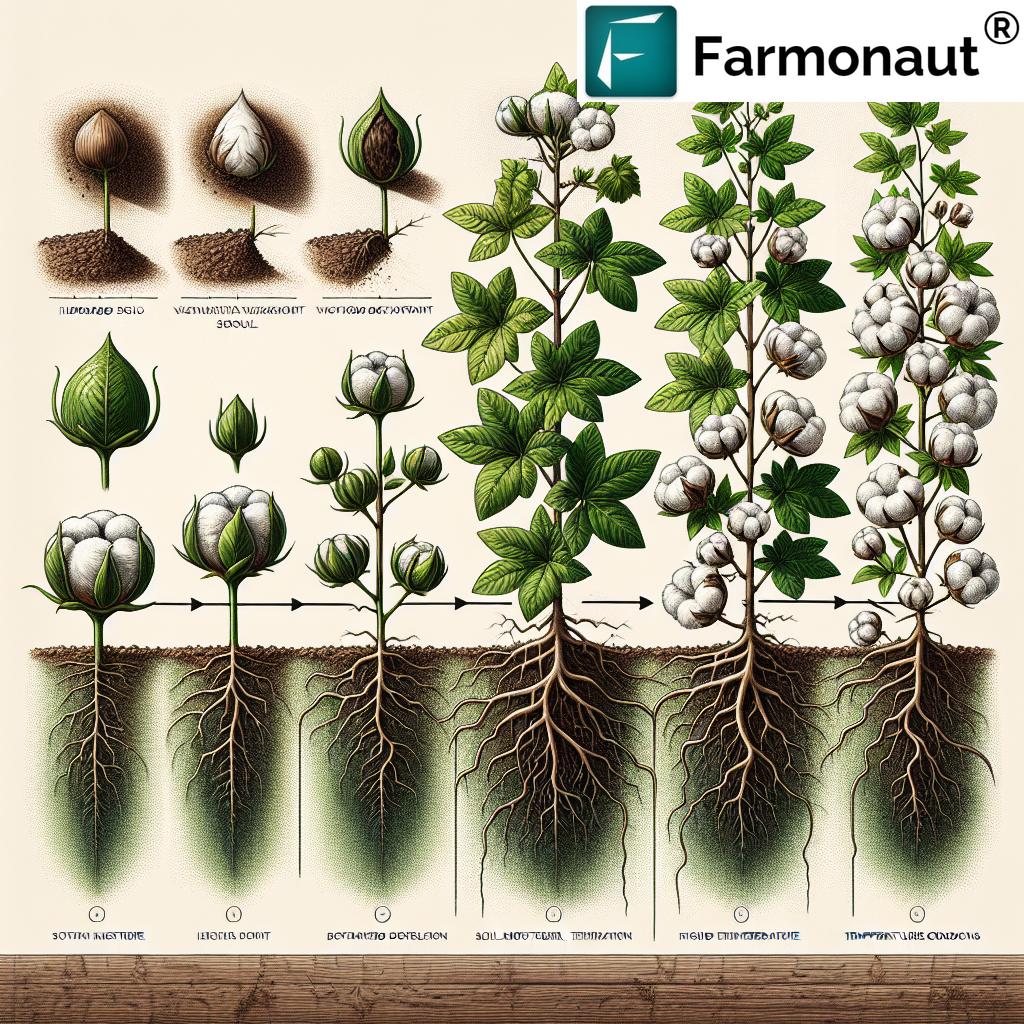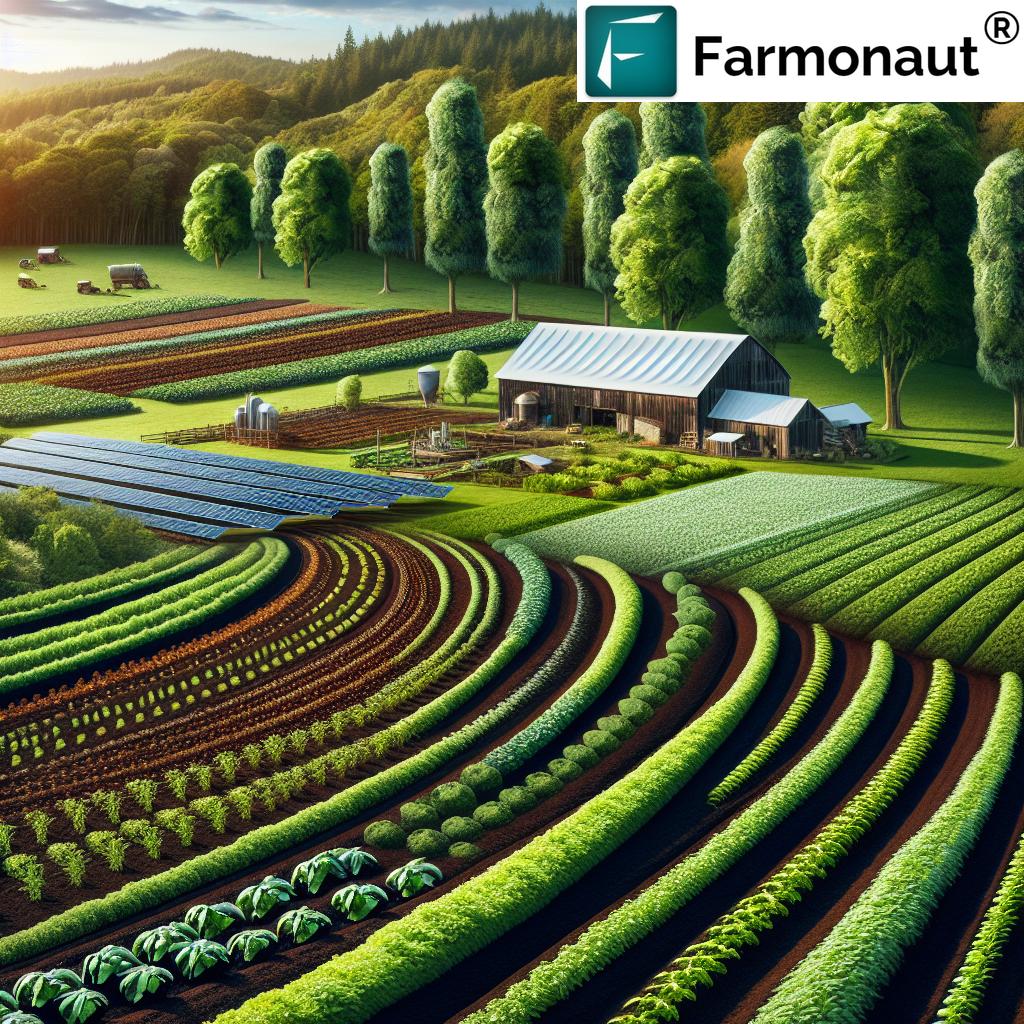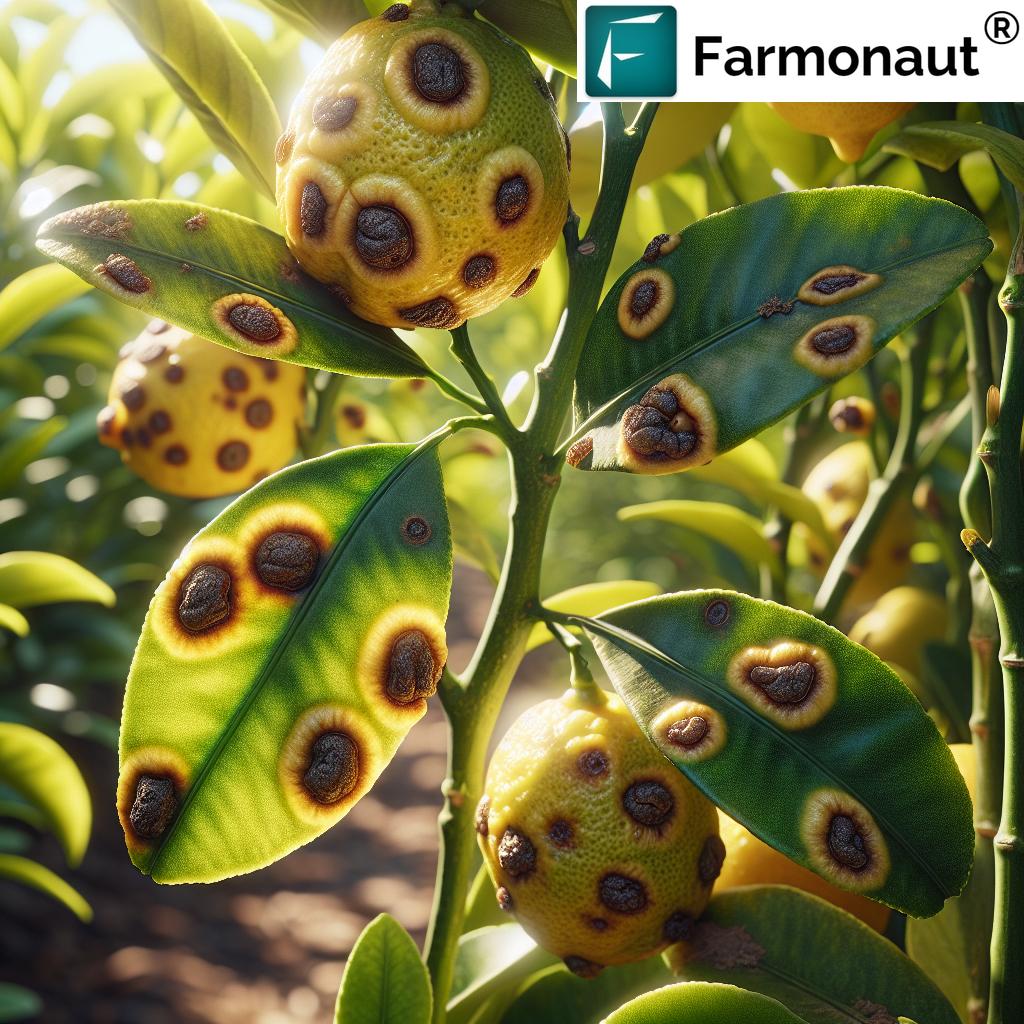Table of Contents
- Introduction
- Global Trivia: Molecular & Tulare Farmers Market
- What is Molecular Farming?
- Biotechnological Advances: Plant Molecular Farming Technologies
- Molecular Farming Market Growth & Economic Trends
- Tulare Farmers Market: 2025 Trends & Innovations
- Comparative Trends Table: Molecular Farming vs Tulare Farmers Market
- Sustainability & Environmental Impact of Molecular Farming
- Key Challenges & Regulatory Landscape
- Farmonaut’s Role & Smart Tools for Modern Farming
- Video Learning: Real-World Innovations
- Future Outlook: Agriculture, Food, and Biotech 2025+
- FAQs on Molecular Farming Market & Tulare Farmers Market
- Conclusion
Molecular Farming Market & Tulare Farmers Market Trends: Revolutionizing Agriculture in 2025
“The global molecular farming market is projected to reach $3.2 billion by 2025, driven by rapid biotechnological innovations.”
In recent years, the molecular farming market has rapidly evolved, marking a revolutionary shift in global agriculture and biotechnology practices. By 2025, the combination of plant molecular farming, new biotechnological tools, and sustainable techniques are intertwined more than ever with traditional farming methods. These advances not only optimize food production but also expand our ability to produce high-value therapeutic proteins, enzymes, and industrial biomolecules sustainably.
As innovation reshapes every corner of the sector—from California’s Tulare Farmers Market to the farming tools market in Asia and Europe—both farmers and businesses are embracing solutions that bridge environmental, economic, and health goals. This article delves into all major dimensions: what molecular farming is, biotechnological advances, market growth, local trends, sustainability, regulatory challenges, and the smart technology platforms like ours at Farmonaut, empowering modern agriculture for 2025 and beyond.
What is Molecular Farming? Understanding the Basics for 2025
Molecular farming, also referred to as plant molecular farming, harnesses the innate biological systems of plants as “biofactories” to synthesize complex molecules—such as vaccines, antibodies, therapeutic proteins, and specialized enzymes—that are typically manufactured using conventional microbial or animal cell culture processes.
Unlike traditional crops** grown solely for food or fiber, these genetically engineered plants are cultivated to express targeted, high-value biomolecules for pharmaceutical, industrial, or research use. The technique offers several advantages:
- Cost-effective compared to animal cell culture or microbial fermentation
- Enhanced scalability—easy expansion simply by planting more crops
- Reduced environmental and energy footprint
- Ability to quickly adapt to global health challenges and emerging diseases
- Supports sustainability goals in modern agriculture
In the molecular farming market of 2025, these advances are not theoretical—they are actively shaping agricultural production systems worldwide, from rural communities in Tulare County to international industries and global markets.
Molecular Farming and the Evolution of Traditional Practices
Molecular farming harnesses genetic engineering to introduce new traits and capabilities into plants like tobacco, maize, rice, and alfalfa. Through advanced gene editing tools** (e.g., CRISPR-Cas9) and improved expression systems**, these crops are transformed into efficient biofactories** for a range of therapeutic and industrial proteins.
- Gene Editing: Allows precise insertion or removal of genes for desired traits.
- Transient Expression: Enables rapid production of target proteins within weeks.
- Containment Strategies: Including chloroplast transformation and greenhouse cultivation, address biosafety and regulatory concerns.
The result? Swift, scalable responses to global health emergencies, sustainable production of critical biomolecules, and a revolutionary upgrade of traditional agricultural practices.
“Over 40% of Tulare farmers are adopting plant molecular farming techniques to boost crop sustainability and yield in 2025.”
Biotechnological Advances Driving the Plant Molecular Farming Market in 2025
The acceleration of biotechnological advances within the plant molecular farming market in 2025 is largely attributed to:
-
CRISPR and Genome Editing Tools:
- Allow precise** manipulation of genetic code to express desired proteins and enzymes.
-
Improved Expression Systems:
- Stable and transient expression** enable rapid** responses to emerging threats and allow for cost-effective scale-up.
-
Chloroplast Engineering:
- Containment of genetic modifications within plant chloroplasts mitigates risks of gene flow** into the environment**.
-
Automated Greenhouses & Precision Agriculture:
- Deployment of data-driven tools, AI, and satellite monitoring systems (like those provided by Farmonaut) boost efficiency** and traceability in molecular crops** production**.
Tools like our advanced carbon footprinting platform enable agricultural enterprises to measure, manage, and minimize their environmental impact within the molecular farming sector—proving vital for achieving sustainability goals.
The integration of these advanced technologies within controlled systems** ensures commercial scalability, product quality, and global regulatory compliance for the molecular farming market in 2025.
Robust Growth of the Molecular Farming Market: Economic Potential for 2025
The molecular farming market is projected to reach a landmark valuation of $3.2 billion by 2025 (source: industry projections). This robust growth is driven by rising demand for cost-effective biopharmaceuticals**, sustainable industrial enzymes**, and novel agricultural products**.
What’s fueling this surge?
- Rising Global Health Needs: Demand for affordable vaccines, antibodies, and therapeutic proteins is surging, especially for pandemic response and rare diseases.
- Premium Crop Value: Farmers** cultivating molecular crops** enjoy higher returns due to the value of the end products, stimulating rural economic development.
- Expanding Adoption: Companies, rural farmers, and governments are integrating molecular farming into existing production systems, diversifying income streams without** abandoning traditional practices**.
- Innovative Business Models: Subscription tools, data-driven traceability (read more here), and platform-supplied regulatory support facilitate adoption at every scale.
The economic impact radiates “beyond the field”: not only do farmers benefit, but value chains in logistics, pharmaceuticals, and technology firms capitalize on this vibrant market.
Why Are Farming Marketing Strategies Changing?
With the molecular farming landscape shifting, farming marketing is increasingly data-driven: local and global farmers now market both traditional food and high-value pharmaceutical products, often leveraging digital and satellite-based traceability tools.
- Emphasize crop origin, sustainability**, and environmental impact**
- Highlight innovative technology use, from smart farming tools market devices to AI apps
- Engage new buyers in pharmaceutical and biotech industries, extending far beyond conventional food supply chains
Tulare Farmers Market: Local Trends in 2025 and the Impact of Molecular Farming
In 2025, California’s Tulare Farmers Market stands as a microcosm of broader agricultural trends driven by the molecular farming revolution. Over 40% of Tulare farmers are adopting plant molecular farming techniques**—testament to the region’s commitment to cutting-edge, sustainable, and economic agricultural transformation.
Key observable trends at the Tulare Farmers Market in 2025:
- High-Value Product Diversification: From food crops to specialty pharma proteins and natural bio-pesticides
- Adoption of Smart Farming Tools: Leveraging satellite monitoring, AI advisory (such as our Jeevn AI Advisory System), and blockchain traceability for food and molecular crops—learn more about Farmonaut traceability here.
- Sustainability Initiatives: Active focus on environmental impact** monitoring, resource-efficient practices, and data-driven carbon footprinting for eligibility in ecolabel programs
- Integration with Rural Economy: Strengthening local supply chains and amplifying regional growth through technology-powered diversification in crop as well as farmer incomes
The Tulare Farmers Market thus acts as a bridge between world-class biotechnology, sustainable practices**, and practical farming innovation on the ground.
Comparative Trends Table: Molecular Farming Market vs. Tulare Farmers Market 2025
| Aspect | Molecular Farming Market (Estimated 2025) | Tulare Farmers Market Trends (Estimated 2025) |
|---|---|---|
| Market Size (USD Millions) | $3,200 | $100+ (local market & specialty product sales) |
| Growth Rate (%) | 19% CAGR | 7% CAGR |
| Major Crops/Products | Tobacco, Maize, Rice, Alfalfa, Specialty Pharma Crops (Vaccines, Proteins, Enzymes) | Grapes, Citrus, Dairy, Bioengineered Proteins, Bio-pesticides, Fresh Fruits, Vegetables |
| Sustainability Initiatives | Widespread carbon footprinting, Water efficiency, Gene-edited crop resilience, Blockchain traceability | Community-wide environmental impact tracking, Organic transitions, Use of smart irrigation and eco-labeling |
| Technological Innovations | CRISPR, Transient Expression, Autonomous Greenhouses, Satellite Crop Monitoring, Blockchain Tracking | Satellite field monitoring, Farm management apps, Cloud-based advisories, Digital produce marketing |
| Adoption Rate by Local Farmers (%) | 28% (global average) | 40%+ in Tulare County |
Sustainability and Environmental Impact in Molecular Farming
Plant molecular farming aligns closely with global sustainability goals and the environmental commitments of food and pharmaceutical industries. By growing proteins and biomolecules in plants rather than by energy-intensive animal cell cultures or chemical synthesis, the sector delivers significant environmental impact reductions:
- Water & Energy Use: Reduced** dramatically compared to fermenters or livestock-based production
- Carbon Footprint: Plants naturally capture CO2, supporting climate targets for the agricultural sector
- Resource Efficiency: Ability to grow molecular crops on marginal or non-arable land alleviates food-versus-pharma competition
- Biological Containment: Chloroplast engineering and greenhouse management minimize risks of gene flow into the environment
- Sustainable Input Reduction: Less reliance on chemical fertilizers and pesticides
Molecular farming** offers a transformative, scalable solution** for the climate and resource challenges** confronting global agriculture** in 2025.
Key Challenges & Regulatory Landscape in Molecular Farming Markets
Despite the remarkable breakthroughs, the molecular farming market navigates several critical challenges in 2025:
- Regulatory Harmonization: Countries are redefining frameworks to address the unique biosafety, containment strategies**, and traceability issues of molecular farming crops—differentiating them from GM food crops.
- Public Acceptance: Consumer trust hinges on transparency, product safety, and the clear demonstration of environmental and health benefits**.
- Commercialization Hurdles: Supply chain integration, scalability, and cross-sector collaboration are critical for successful market entry and growth**.
Continued innovation in digital traceability, regulatory compliance tools, and public education is essential. Take digital traceability (see Farmonaut’s traceability dashboard)—it’s not just valuable for regulatory reporting but also for market-facing certifications, ecolabels, and consumer information.
Farmonaut Tools to Drive Smart, Sustainable Farming in 2025
As the farming tools market modernizes, we at Farmonaut strive to empower agricultural producers—from smallholders in Tulare to industrial-scale growers worldwide—via satellite technology, AI-driven analytics, blockchain traceability, and smart fleet resource management.
- Satellite-Based Monitoring: Real-time NDVI & crop health insights for sustainable crop decisions, yield estimation, and environmental monitoring.
- Jeevn AI Advisory: AI-driven, hyper-local strategies for disease management, weather response, and input optimization.
- Blockchain Traceability: Seamless product tracking for regulatory, insurance, and buyer transparency.
- Fleet & Resource Management: Data-powered operational tools, logistics, and asset usage analytics. Learn more about our fleet management platform.
- Carbon Footprint Monitoring: Environmental impact dashboards for compliance and sustainability programs.
Accessible via web, Android (download here), iOS (get iOS app), and direct API access (API developer documentation), our platform is built mobile responsive and scales from individual fields to multinational agribusinesses. For large-scale, multi-farm/estate management, discover our Agro Admin App.
We support farming innovation by offering subscription services tailored for rural growers, businesses, and governments. Farmonaut’s technology democratizes satellite data, cost-effectively bridging tech and traditional systems for next-generation molecular and food farming.
For sustainable crop plantation and forestry advisory*, check our full app and consultancy offering here.
Video Learning: Innovations in Crop Monitoring, Smart Farming & Satellites
Dive deeper into the real-world impact of advanced biotechnological systems on farming and sustainability with the following resources:
-
How to Start with Farmonaut API for Field & Weather Data Integration
User-friendly, easily embeddable tools bring precision farming and advanced analytics into everyday rural, industrial, and global farming operations.
The Future: Molecular Farming, Food Security and Sustainability in 2025 and Beyond
The future of the molecular farming market is inherently interdisciplinary, marrying traditional agricultural** knowledge with advanced biotechnological systems** and AI.
With continued breakthroughs in genome editing**, synthetic biology, and resource optimization, new classes of plants** will produce** not only vaccines and antibodies**, but also biofuels, materials, and specialty compounds for a circular bio-economy.
Global food and health** crises (like pandemics, malnutrition, and supply chain instability) will be mitigated more swiftly, affordably, and sustainably through plant-based production platforms. As data-driven platforms like Farmonaut streamline compliance, resource management, and farming marketing**, every stakeholder—from farmers** to governments—will gain actionable insights for adaptive, resilient food and molecular markets.
FAQs: Molecular Farming Market & Tulare Farmers Market in 2025
What is the molecular farming market?
The molecular farming market encompasses all economic activity related to the production, sale, and technology development of genetically engineered plants grown to produce high-value biomolecules such as proteins, vaccines, and enzymes—primarily for pharmaceutical, industrial, and food system applications.
How does plant molecular farming differ from conventional farming?
While conventional farming focuses on food and fiber crops, plant molecular farming uses advanced gene editing and expression systems to produce specific, non-food biomolecules in plants, often aided by automated, data-driven tools for scalability and containment.
Why is the Tulare Farmers Market notable in 2025?
Tulare Farmers Market represents a leading region where over 40% of farmers are integrating plant molecular farming, leveraging smart technology for higher yield, sustainability, and specialty product diversification.
What major challenges does molecular farming face?
Challenges include regulatory harmonization, ensuring biosafety, building public trust, and scaling up commercialization. Digital traceability and standardized compliance tools are key for market entry and regulatory acceptance.
What role does Farmonaut play in the farming tools market for molecular farming?
We at Farmonaut provide satellite-based real-time monitoring, AI advisories, blockchain traceability, and carbon footprint management tools that enable both traditional and molecular farmers to optimize efficiency, sustainability, and regulatory compliance across their operations.
Where can I get started with satellite farming tools or Farmonaut apps?
You can try the Farmonaut platform here or use our API for integrations. Android and iOS apps are also available for crop and environmental monitoring on-the-go.
Conclusion: Embracing the Agricultural Revolution in 2025
The molecular farming market in 2025 is more than an evolution; it’s a revolution that fuses cutting-edge biotechnology and systems thinking with sustainability and practical farming know-how. Across global markets and local hubs like the Tulare Farmers Market, the synergy of advanced crop engineering, automated farm management, robust regulatory frameworks, and scalable satellite technologies is enabling transformative change.
From climate-positive production systems**, health-protecting vaccines, to economic diversification for rural farmers**, this is the blueprint for the next-generation agricultural sector. With farm-to-biofactory transitions accelerating, and smart platforms like Farmonaut within everyone’s reach, the sector is primed not only for robust growth**, but for a deeply positive environmental** and social impact** as well. The future** of agriculture—sustainable, data-driven, resilient, and inclusive—is now.











